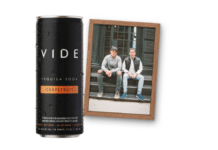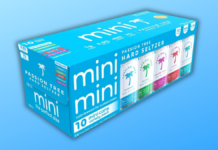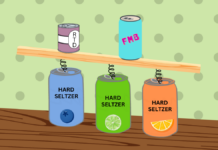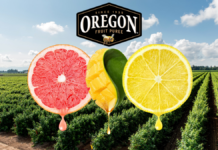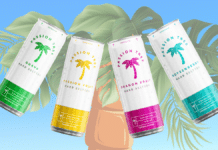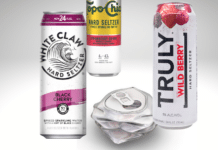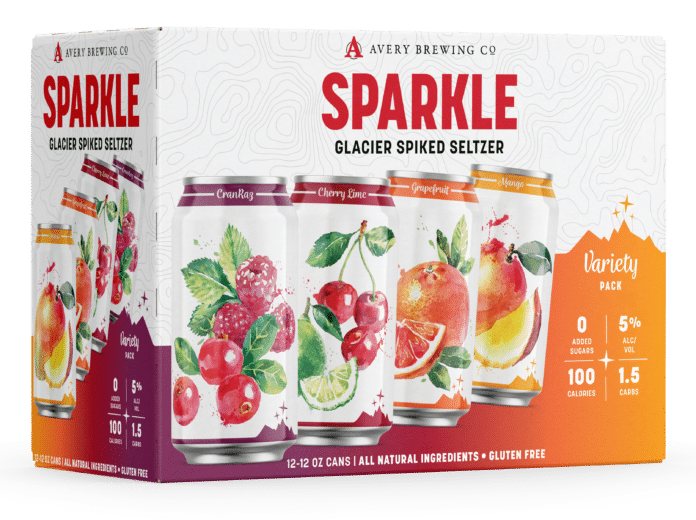One of the biggest health and wellness trends of the last few years is the clean label movement. But what exactly does clean label mean, and does your hard seltzer have a clean label?
A clean label is one with as few ingredients as possible, and those listed should be natural and made from whole foods. Clean labels are void of artificial chemicals, known carcinogens, or basically anything too hard to pronounce.
Clean labels should also be free of preservatives and include warnings about potential allergens and other “hot-button” ingredients, such as sodium and sugar. It is not just a matter of disclosing potentially harmful ingredients, but eliminating them entirely.
A Mission that’s Squeaky Clean
The journalist and food activist Michael Pollan offers a useful rule of thumb, encouraging people to eat foods containing ingredients that their great-grandparents would recognize as food were they to time travel and read the nutrition label.
The Clean Label Project is a non-profit with a mission “to bring truth and transparency to food and consumer product labeling.” They are “committed to changing the definition of food and consumer safety through the use of data, science, and transparency,” and offer certifications for products that meet their rigorous purity standards. Companies seeking certification are invited to reach out to the organization.
However you choose to define it, a clean label encourages greater awareness of what we put into our bodies in an effort to eliminate ingredients which may do us harm. At its heart, the clean label movement is a quest for greater transparency (and familiarity) in our ingredient lists.
The alcohol industry in particular is infamously nebulous regarding its ingredient labels. As a vestige of prohibition, alcohol sales are not regulated by the FDA but the Alcohol and Tobacco Tax & Trade Bureau (TTB), which does not require the same disclosures.
While it is not required by the TTB and most drinks companies opt to keep their nutritional info hidden, hard seltzer makers are bucking this trend. Many seltzer companies already have clean labels; they have nothing to hide, and they want consumers to know it.
Brands Come Clean and Ditch the Aspartame
Consumer desire for cleaner ingredient lists and transparent labeling fueled the recent popularity of soft seltzers like La Croix and Bubly, sparkling water with a hint of natural fruit flavor. Most hard and soft seltzers are flavored with natural sweeteners, like stevia, in lieu of aspartame (aka Nutrasweet or Equal), a lab accident whose health efficacy is debated.
Aspartame was deemed as safe for the general population and approved for use by the FDA in 1981. They note that “aspartame is one of the most exhaustively studied substances in the human food supply, with more than 100 studies supporting its safety.”
However, many consumers still prefer to avoid the chemical substance based on anecdotal evidence, opting instead for beverages sweetened with Stevia. A popular clean label choice, Stevia is made from plant extracts rather than chemicals.
It makes sense that an alcoholic version of this easy to drink, water based beverage would also be a hit with legal-drinking-age (LDA) customers drawn to clean labels. Indeed, hard seltzer has risen in popularity alongside the clean label movement. The OG hard seltzer, White Claw, which set the standard for boozy bubbly waters to come, boasts the tagline “made pure.”
Blue California Makes Clean Ingredients
Eco-friendly food and beverage producer Blue California just released its own line of travel inspired hard seltzers called Destination Flavors, where each variety is inspired by a different global city. The true-to-fruit flavors contain a clean label, thanks in part to the company’s partnership with Sweegen.
SweeGen “design[s] sweet taste solutions for beverage and food manufacturers around the world,” according to its website. The innovative company uses plant-based Stevia as its base, with a proprietary recipe.
The environmentally friendly SweeGen is a natural clean-label partner for the sustainability focused Blue California. “Clean-label RTD alcoholic beverages put product developers to the test because low sweetness products are quite challenging to develop. But we make it easy by providing flavors paired with taste modulation technology developed by our collaborator SweeGen,” Blue California’s head of flavors and fragrances, Kathy Oglesby, said in a release.
“For the health-conscious consumer lifestyle, these Destination Flavors meet the market demand for improved taste, wider choices and simple ingredients,” Oglesby added.
Consumers Willing to Pay More for Clean
Such sustainability efforts are increasingly important to consumers. As AdWeek says, “in today’s socially conscious environment, customers are willing to spend more of their money with businesses that prioritize corporate social responsibility.”
Put another way, many customers are okay paying a bit more to ensure their label is clean. Consumers want to support businesses whose values reflect their own, including in the drinks industry. A clean label may cost a bit more to produce, but today’s customer is willing to pay for quality.
- Molson Coors Increases NA Foothold with La Colombe Coffee - September 15, 2021
- Half Time Beverage Adds Seltzer and Canned Cocktails Gift Packs - September 14, 2021
- Coming Soon: Great Lakes Agave Twist Ranch Water - September 13, 2021


